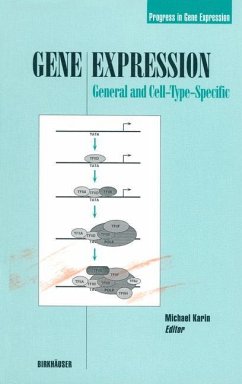This book is the first volume in a new series Progress in Gene Expres sion. The control of gene expression is a central-most topic in molecular biology as it deals with the utilization and regulation of gene informa tion. As we see huge efforts mounting all over the developed world to understand the structure and organization of several complex eukaryotic genomes in the form of Gene Projects and Genome Centers, we have to remember that without understanding the basic mechanisms that gov ern the use of genetic information, much of this effort will not be very productive. Fortunately, however, research during the past seven years on the mechanisms that control gene expression in eukaryotes has been extremely successful in generating a wealth of information on the basic strategies of transcriptional control. (Although regulation of gene ex pression is exerted at many different levels, much of the emphasis in this series will be on transcriptional control. A future volume, however, will deal with other levels of regulation). The progress in understanding the control of eukaryotic transcription can only be appreciated by realizing that seven years ago we did not know the primary structure of a single sequence specific transcriptional activator, and those whose primary structures were available (e. g. , homeo domain proteins) were not yet recognized to function in this capacity.
Hinweis: Dieser Artikel kann nur an eine deutsche Lieferadresse ausgeliefert werden.
Hinweis: Dieser Artikel kann nur an eine deutsche Lieferadresse ausgeliefert werden.








